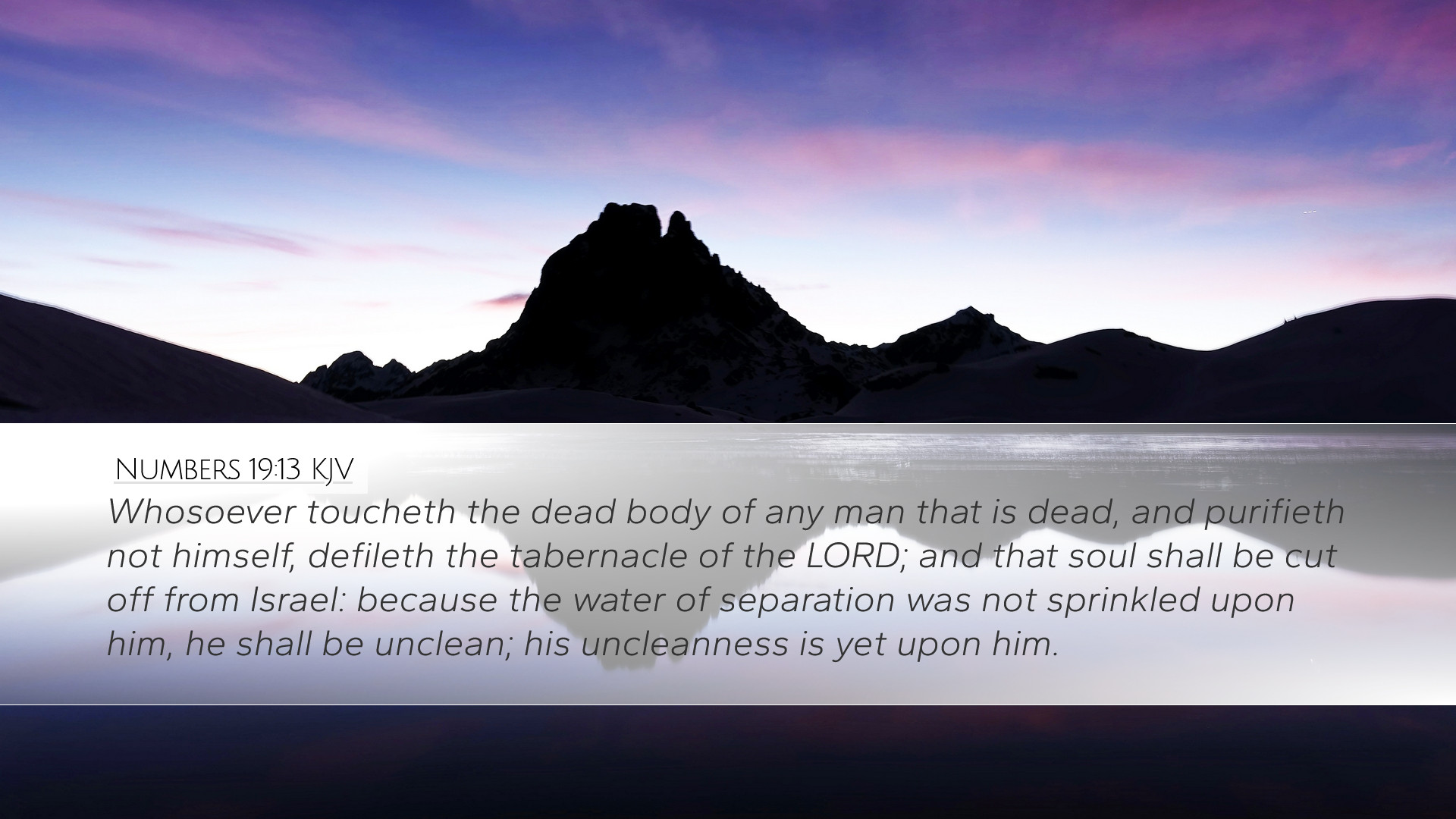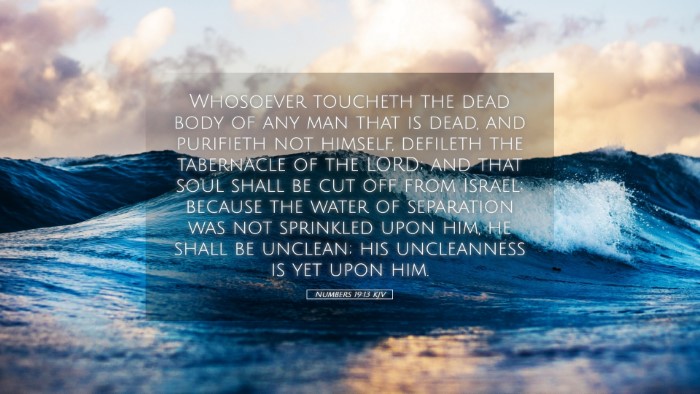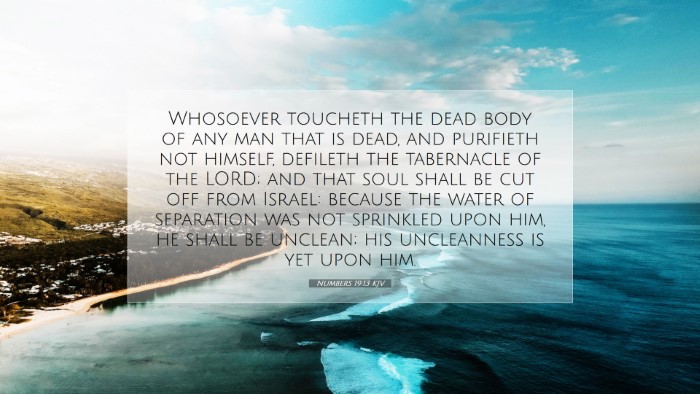Commentary on Numbers 19:13
Numbers 19:13 is a pivotal verse in the context of purity laws in the Old Testament, reflecting both physical and spiritual dimensions of the Israelite community's relationship with God.
Text of Numbers 19:13
"Whosoever touches the dead body of any man that is dead, and purifies not himself, defileth the tabernacle of the Lord; and that soul shall be cut off from Israel: because the water of separation was not sprinkled upon him, he shall be unclean; his uncleanness is yet upon him."
Overview of Context
This verse falls within the laws regarding purification after contact with the dead, outlined in the ritual concerning the red heifer. Understanding these regulations is critical for grasping Israel's covenantal relationship with Yahweh and the implications of uncleanness, particularly as it relates to worship and communal life.
Insights from Matthew Henry
- Implications of Touching the Dead: Henry emphasizes that touching a corpse signifies mortality, which opposes the holiness of God. The dead are seen as symbols of the fallen state of humanity, and this act of touching thus introduces defilement.
- Spiritual Death: He notes the correlation between physical death and spiritual death, drawing attention to the need for regular purifications analogous to the sanctification required for spiritual life.
- Separation from the Lord: Any failure to purify oneself after becoming ceremonially unclean directly hindered one's relationship with God, leading to consequences like being "cut off" from Israel, indicating a loss of communion with the community of believers.
Insights from Albert Barnes
- Purification Processes: Barnes delves into the processes associated with the purification after contact with the dead, elucidating that the prescribed rituals highlight the seriousness of sin and its effects on community and worship.
- The Role of the Water of Separation: He asserts that the "water of separation" is a crucial element in reinstating purity, symbolizing the cleansing power of God. The lack of this purification signified an ongoing status of defilement invalidating one's relationship with the Lord.
- The Importance of Community Influence: Barnes articulates the communal aspect of purity, illustrating how one person's uncleanness could affect the entire congregation, reinforcing the significant collective responsibility within the community of faith.
Insights from Adam Clarke
- Covenantal Context: Clarke situates this verse within the broader covenantal context, indicating that Israel’s laws were not merely ceremonial but were instituted as part of their identity as a holy nation before God.
- Observance as a Testament of Faith: He points out that the observance of these laws would serve as a testament to their faith and trust in God’s promise to sustain the nation, linking physical observance to spiritual blessings.
- Strictness in Law Observance: Clarke warns against the laxity in observing these rituals, expounding on how neglecting such laws could lead to divine disfavor, a concept that transcends into New Testament teachings about holiness and separation from sin.
Theological Reflections
The implications of Numbers 19:13 are profound for understanding the nature of sin and redemption. It addresses the necessity of holiness in one's relationship with God and the church community. This strict enforcement of purity laws indicates that God requires a people who reflect His holiness.
Application for Pastors and Theologians
For pastors, this passage serves as a reminder to guide their congregations in understanding the consequences of sin and the vital importance of personal and collective holiness. The concept of being “cut off” can be a powerful teaching tool about the seriousness of sin and the need for repentance and reconciliation with God.
Conclusion
As we reflect on Numbers 19:13, we are called to recognize that the historical laws given to Israel are not without relevance today. They highlight the ongoing need for purity, both in our personal lives and in the life of the church, underscoring the transformative power of God’s atonement and the call to live consecrated lives. Just as the Israelites were required to engage in rituals for purity, believers today are invited to partake in the purifying work of Christ through His Spirit, maintaining an active relationship with the divine.


